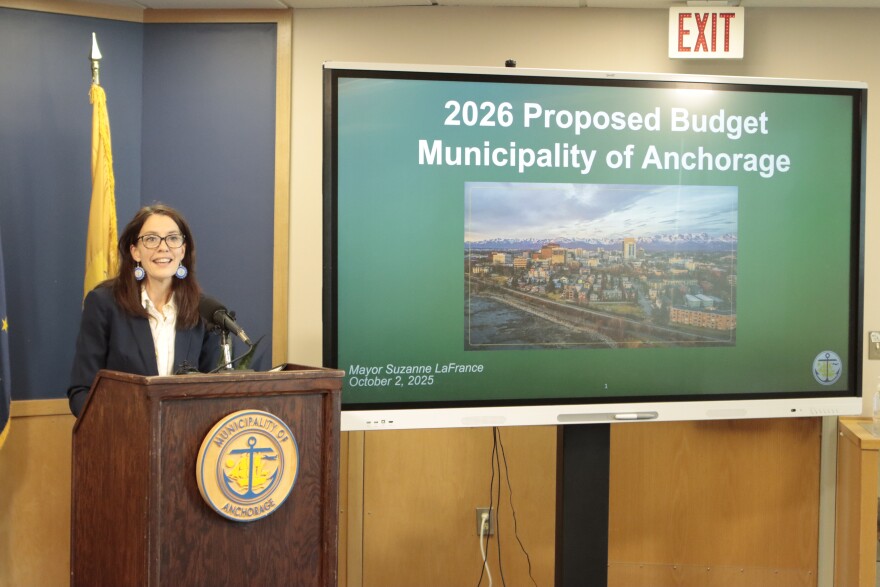Anchorage Mayor Suzanne LaFrance has officially rolled out her proposal for a 3% sales tax. She said the final version includes a list of things that would not be taxed.
“Those include housing, medicine and medical services, certain groceries and personal hygiene products, gasoline and diesel fuel, certain personal services including child care, utilities and sales to nonprofit organizations,” LaFrance listed.
The proposal has been in the works for weeks. It will be formally introduced at the Assembly meeting Tuesday night and the body could decide as early as Dec. 2 whether to put the proposal to voters on an upcoming ballot.
LaFrance’s administration has reiterated that Anchorage needs the tax because it needs new revenue, and the tax could generate between $150 to $180 million dollars a year. That money would go toward property tax relief, child care and housing, and public safety and capital projects. City officials estimate about a third of the tax would be paid by nonresidents, whether they’re tourists or people who commute to Anchorage for work.
READ MORE: Can Anchorage leaders convince their tax-wary residents to adopt a sales tax?
But the mayor’s tax isn’t the only one city officials are considering. Assembly members are also looking at a smaller 1% sales tax, as well as a tax on short-term rentals and an increased room tax. LaFrance said she believes her tax would address the city’s immediate financial needs.
“I think that our best way forward is to adopt a sales tax,” LaFrance said. “It generates the amount of revenue we need that will stabilize our finances and provide us the opportunities we need to create the community that we want.”
LaFrance said she expects Assembly members will amend her proposal during their process.
“There'll also be conversations around, you know, should it be capped, and do we have the right exemptions,” LaFrance said. “And I think those are the right conversations we should have, because we really need to figure this out. It is not going to get any easier the longer we wait.”
Eight Assembly members would need to approve the proposal before it’s sent to voters.
As it is currently written, if approved, the sales tax would take effect no earlier than July 1, 2028.


